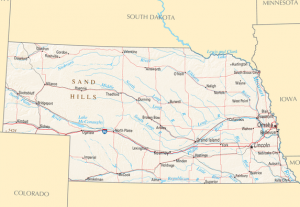Nebraska health officials are stressing vaccination for pertussis after seeing more than 200 cases of the disease in the month of January. Cases are on the rise in eastern and southeastern Nebraska.

“There were more than 200 whooping cough cases in January which is higher than some of our total case numbers for previous years and that’s concerning,” said Dr. Joseph Acierno, Chief Medical Officer and Director of Public Health for the Nebraska Department of Health and Human Services. “Parents should check their children’s vaccination records as well as their own to make sure everyone is protected.”
How dramatic is the increase in cases? In January 2015, 215 cases were reported. This contrasts with 395 cases in all of last year and 240 in all of 2013.
Whooping cough, also known as pertussis, is a highly contagious disease marked by severe coughing. It’s caused by bacteria found in the mouth, nose and throat of an infected person. Whooping cough is spread through close contact when an infected person coughs or sneezes.
It can affect people of all ages but is most common in infants and young children and can be life-threatening especially for babies under a year old. Older children, teenagers and adults who may not know they have the disease can spread it to infants and young children in their household. Anyone in contact with babies, toddlers and school-age kids should be vaccinated against whooping cough.
Besides vaccination, preventive measures like covering coughs and sneezes, washing your hands and staying home when sick can help protect from whooping cough, flu, the common cold and other respiratory diseases.


One thought on “Nebraska reports spike in whooping cough”